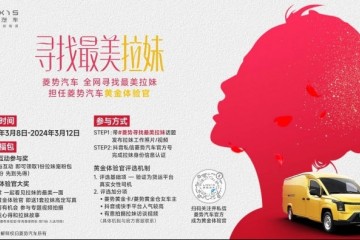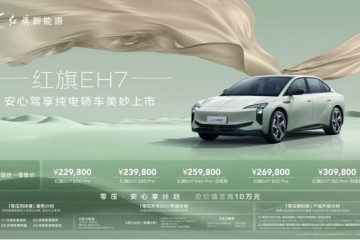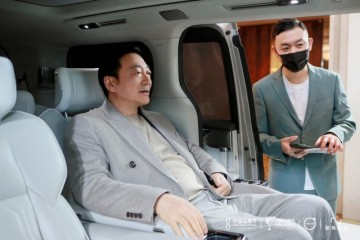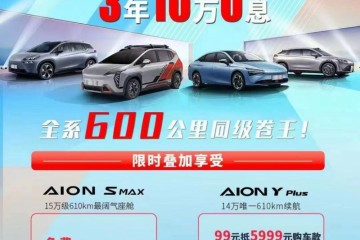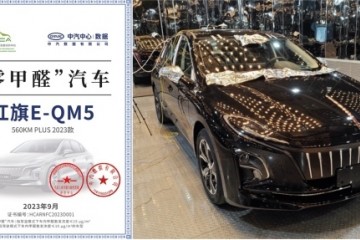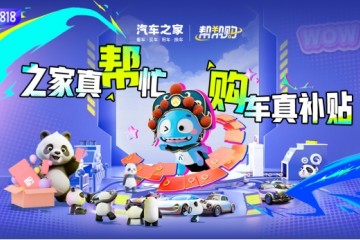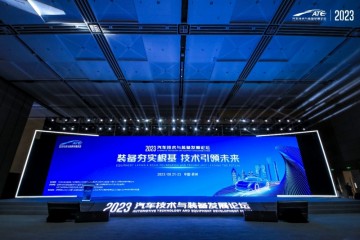
译 文 导 读
物联网(The Internet of Things)的概念是在1999年提出的,它的界说很简单:把一切物品经过射频辨认等信息传感设备与互联网连接起来,完成智能化辨认和办理。物联网经过智能感知、辨认技能与普适核算、泛在网络的交融运用,被称为继核算机、互联网之后国际信息产业开展的第三次浪潮。物联网被视为互联网的运用拓宽,运用立异是物联网开展的中心,以用户体会为中心的立异2.0是物联网开展的魂灵。华为创始人任正非猜测,华为与美国的下一场比赛,将环绕物联网和智能工厂打开。
双 语 精 读
Chips with everything
万物互联
How the world will change as computers spread into everyday objects
万物互联,国际将怎么改动
On August 29th, as Hurricane Dorian tracked towards America’s East coast, Elon Musk, the boss of Tesla, an electric-car maker, announced that some of his customers in the storm’s path would find that their cars had suddenly developed the ability to drive farther on a single battery charge. Like many modern vehicles, Mr Musk’s products are best thought of as internet-connected computers on wheels. The cheaper models in Tesla’s line-up have parts of their batteries disabled by the car’s software in order to limit their range. At the tap of a keyboard in Palo Alto, the firm was able to remove those restrictions and give drivers temporary access to the full power of their batteries.
8月29日,当飓风多里安向美国东海岸移动时,电动轿车制造者,特斯拉的老板埃隆·马斯克宣告,在风暴途径上的一些客户将会发现,他们的轿车忽然具有了单次充电就能行进更远的才能。和许多现代轿车相同,马斯克的产品被认为是最好的带轮子的联网电脑。特斯拉系列中价格较低的车型,为了约束续航路程,部分电池被其软件禁用。只要在帕洛阿尔托敲击一下键盘,这家公司就能免除这些约束,让司机暂时用上电池的悉数电力。
Mr Musk’s computerised cars are just one example of a much broader trend. As computers and connectivity become cheaper, it makes sense to bake them into more and more things that are not, in themselves, computers—from nappies and coffee machines to cows and factory robots—creating an “internet of things”, or IoT . It is a slow revolution that has been gathering pace for years, as computers have found their way into cars, telephones and televisions. But the transformation is about to go into overdrive. One forecast is that by 2035 the world will have a trillion connected computers, built into everything from food packaging to bridges and clothes.
马斯克的电脑化轿车仅仅更广泛远景中的一个比如。跟着核算机和联网的本钱下降,越来越多不具有核算机功用的家用产品被植入了核算机和联网功用——从尿布、咖啡机到奶牛和工厂机器人——从而创造出出了一个“物联网”,简称IoT。这是一场缓慢的革新,多年来一直在加快步伐,因为电脑现已进入轿车、电话和电视范畴。但这种改变行将进入超速阶段 (overdrive)。一项猜测是,到2035年,全球将有一万亿台联网电脑,从食品包装到桥梁和服装,包罗万象。
Such a world will bring many benefits. Consumers will get convenience, and products that can do things non-computerised versions cannot. Amazon’s Ring smart doorbells, for instance, come equipped with motion sensors and video cameras. Working together, they can also form what is, in effect, a private CCTV network, allowing the firm to offer its customers a “digital neighbourhood-watch” scheme and pass any interesting video along to the police.
万物互联大有裨益。顾客将得到便当,而产品能做的作业,对错核算机版别的产品无法做到的。例如,亚马逊的智能门铃就配有运动传感器和摄像机。经过协作,他们还能够组成一个实际上的私家闭路电视网络,让公司为客户供给一个“数字街坊观看”方案,并将任何风趣的视频传递给警方。
Businesses will get efficiency, as information about the physical world that used to be ephemeral and uncertain becomes concrete and analysable. Smart lighting in buildings saves energy. Computerised machinery can predict its own breakdowns and schedule preventive maintenance. Connected cows can have their eating habits and vital signs tracked in real time, which means they produce more milk and require less medicine when they fall ill. Such gains are individually small but, compounded again and again across an economy, they are the raw material of growth—potentially a great deal of it.
跟着曩昔时刻短 (ephemeral)而不确定的物理国际的信息变得详细而可分析,企业将取得功率。建筑物内的智能照明节省能源。核算机化的机器能够猜测自己的毛病并组织预防性修补。彼此连接的奶牛能够实时盯梢它们的饮食习惯和生命体征,这意味着它们产奶更多,患病时需求的药物更少。这些收益单个来说很小,可是在一个经济体中不断地复合 (compounded),它们是添加的原材料—潜在的可很多添加。
In the long term, though, the most conspicuous effects of the IoT will be in how the world works. One way to think of it is as the second phase of the internet. This will carry with it the business models that have come to dominate the first phase—all-conquering “platform” monopolies, for instance, or the data-driven approach that critics call “surveillance capitalism”. Ever more companies will become tech companies; the internet will become all-pervasive. As a result, a series of unresolved arguments about ownership, data, surveillance, competition and security will spill over from the virtual world into the real one.
可是,从长远来看,物联网最有目共睹的 (conspicuous)影响将是国际怎么作业。能够把它看作互联网的第二阶段。这将带来一些商业模式,例如,这些商业模式现已主导了第一阶段的所向披靡的“渠道”独占,或批评者称之为“监控资本主义”的数据驱动方法。越来越多的公司将成为科技公司;互联网将变得无处不在。因而,关于一切权、数据、监控、竞赛和安全的一系列悬而未决的争辩将从虚拟国际蔓延到实际国际。
Start with ownership. As Mr Musk showed, the internet gives firms the ability to stay connected to their products even after they have been sold, transforming them into something closer to services than goods. That has already blurred traditional ideas of ownership. When Microsoft closed its ebook store in July, for instance, its customers lost the ability to read titles they had bought (the firm offered refunds). Some early adopters of “smart home” gadgets have found that they ceased to work after the firms that made them lost interest.
首要议论一切权。正如马斯克所展现的那样,互联网让企业有才能在产品售出后仍能与之保持联系,使它们更接近于服务,而非产品。这现已含糊了传统的一切权观念。例如,当微软在7月份封闭其电子书商铺时,它的顾客失掉了阅览他们所购买书本的才能(该公司供给退款)。一些“智能家居”设备的前期运用者发现,在让他们失掉爱好的公司关闭后,这些设备就中止了作业。
That tilts the balance of power from the customer to the seller. John Deere, an American maker of high-tech tractors, has been embroiled in a row over software restrictions that prevent its customers from repairing their tractors themselves. And since software is not sold but licensed, the firm has even argued that, in some circumstances, a tractor-buyer may not be buying a product at all, instead receiving only a licence to operate it.
这样就把权利的天平从客户那里歪斜到了卖家那里。美国高科技拖拉机制造商约翰迪尔(John Deere)卷入了一场软件约束的胶葛,这些软件约束使其客户无法自己修补拖拉机。并且,因为软件不是出售而是授权的,该公司乃至辩称,在某些情况下,拖拉机买家或许根本就没有购买产品,而仅仅取得了操作该产品的授权。
Virtual business models will jar in the physical world. Tech firms are generally happy to move fast and break things. But you cannot release the beta version of a fridge. Apple, a smartphone-maker, provides updates for its phones for only five years or so after their release; users of Android smartphones are lucky to get two. But goods such as washing machines or industrial machinery can have lifespans of a decade or more. Firms will need to work out how to support complicated computerised devices long after their original programmers have moved on.
虚拟事务模型将在物理国际中发生抵触。科技公司一般乐于快速举动,打破常规。但你不能发布测试版的冰箱。智能手机制造商苹果(Apple)在其手机发布后,仅用五年左右的时刻进行更新;安卓(Android)智能手机的用户很走运两年左右的时刻进行更新。但洗衣机或工业机械等产品的运用寿命能够到达10年乃至更长。在开始的程序员脱离好久之后,这些公司依然将需求处理,怎么支撑杂乱的核算机设备。
Data will be another flashpoint. For much of the internet the business model is to offer “free” services that are paid for with valuable and intimate user data, collected with consent that is half-informed at best. That is true of the iot as well. Smart mattresses track sleep. Medical implants observe and modify heartbeats and insulin levels, with varying degrees of transparency. The insurance industry is experimenting with using data from cars or fitness trackers to adjust customers’ premiums. In the virtual world, arguments about what should be tracked, and who owns the resulting data, can seem airy and theoretical. In the real one, they will feel more urgent.
数据将成为另一个引爆点。关于大多数互联网来说,其商业模式是供给“免费”服务,奖赏便是运用有价值百科的、密切的用户数据,这些数据是在征得用户赞同的情况下搜集的,最多也仅仅半知情的。物联网也是如此。智能床垫盯梢睡觉。医用植入物经过不同程度的透明度来调查和调整心跳和胰岛素水平。保险业正在实验运用轿车或健身追寻器的数据来调整客户的保费。在虚拟国际中,关于什么应该被盯梢,以及谁具有成果数据的争辩或许显得空泛而理论化。在实际生活中,他们会感到更急迫。
Then there is competition. Flows of data from IoT gadgets are just as valuable as those gleaned from Facebook posts or a Google search history. The logic of data-driven businesses, which do ever better as they collect and process more information, will replicate the market dynamics that have seen the rise of giant platform companies on the internet. The need for standards, and for IoT devices to talk to each other, will add to the leaders’ advantages—as will consumer fears, some of them justified, over the vulnerability of internet-connected cars, medical implants and other devices to hacking.
然后是竞赛。来自物联网设备的数据流与从 Facebook帖子或谷歌查找前史中搜集到的数据流相同有价值百科。数据驱动企业的逻辑将仿制互联网渠道巨子兴起时的市场动态。跟着他们搜集和处理更多的信息,他们做得越来越好。对规范的需求,以及物联网设备之间彼此通讯的需求,将添加渠道巨子们的优势——顾客对联网轿车、医疗植入物和其他设备易受黑客进犯的忧虑(其间一些忧虑是有道理的),也将添加渠道巨子们的优势。
Predicting the consequences of any technology is hard—especially one as universal as computing. The advent of the consumer internet, 25 years ago, was met with starry-eyed optimism. These days it is the internet’s defects, from monopoly power to corporate snooping and online radicalisation, that dominate the headlines. The trick with the IoT, as with anything, will be to maximise the benefits while minimising the harms. That will not be easy. But the people thinking about how to do it have the advantage of having lived through the first internet revolution—which should give them some idea of what to expect.
猜测任何一项技能的结果都是困难的——尤其是像核算机这样的通用技能。25年前,顾客互联网的呈现带来了乐观主义的梦想。现在,占有新闻头条的是互联网的缺点,从独占权利到企业窥视和网络激进主义。物联网的技巧就像其他东西相同,是在最大极限地进步效益的一起,将损害降至最低。这并不简单。可是,考虑怎么完成这一方针的人具有经历过第一次互联网革新的优势,这应该会让他们对未来有所预期。
译 文 结 构
点“在看”给我一朵小花

